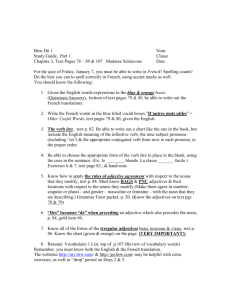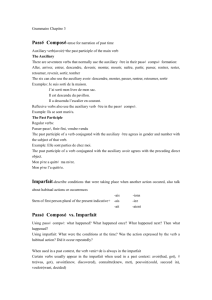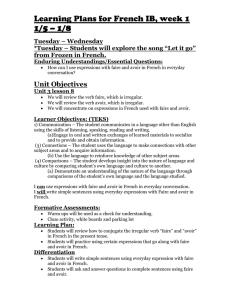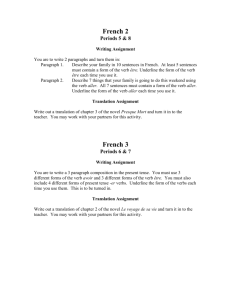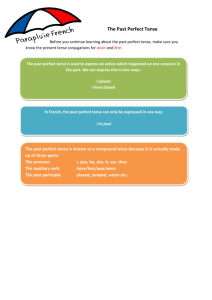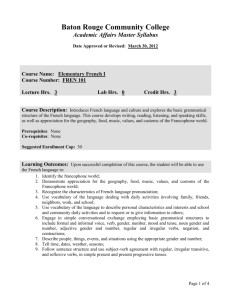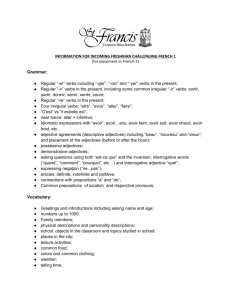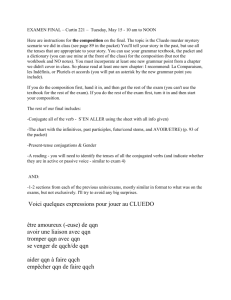Everything you need to know about the
advertisement
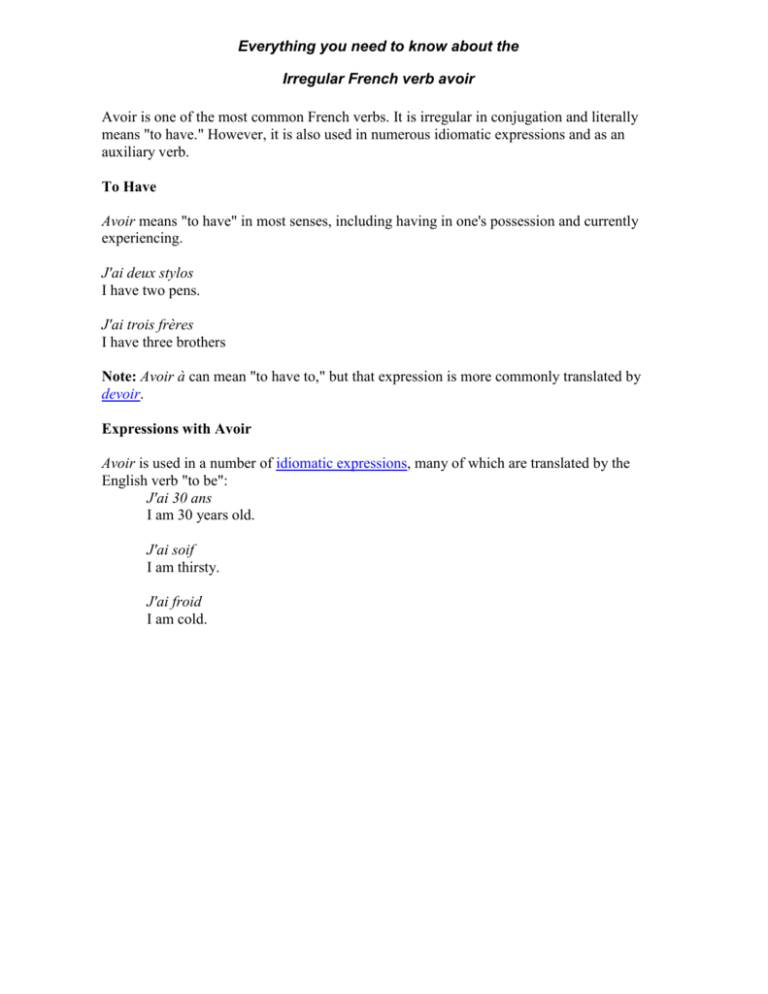
Everything you need to know about the Irregular French verb avoir Avoir is one of the most common French verbs. It is irregular in conjugation and literally means "to have." However, it is also used in numerous idiomatic expressions and as an auxiliary verb. To Have Avoir means "to have" in most senses, including having in one's possession and currently experiencing. J'ai deux stylos I have two pens. J'ai trois frères I have three brothers Note: Avoir à can mean "to have to," but that expression is more commonly translated by devoir. Expressions with Avoir Avoir is used in a number of idiomatic expressions, many of which are translated by the English verb "to be": J'ai 30 ans I am 30 years old. J'ai soif I am thirsty. J'ai froid I am cold. Everything you need to know about the Irregular French verb être Être is one of the most common French verbs. It is irregular in conjugation and literally means "to be." Être is also used in some idiomatic expressions and as an auxiliary verb for compound tenses and the passive voice. To Be Être means "to be" in many senses that this verb is used in English. 1) It is used with adjectives, nouns, and adverbs to describe a temporary or permanent state of being: Il est beau - He is handsome Je suis à Paris - I'm in Paris Nous sommes français - We're French Il est là-bas - He's over there 2) Être is used to describe someone's profession; however, note that the indefinite article is not used in this construction in French: Mon père est avocat - My father is a lawyer Je suis étudiant - I'm a student Notes There are a number of English "to be" expressions which are translated in French by avoir (to have): avoir froid - to be cold avoir raison - to be right avoir xx ans - to be xx years old When talking about the weather, French uses the verb faire (to do/make) rather than être: Il fait beau - It's nice out Il fait du vent - It's windy Quel temps fait-il ? - How's the weather? Être as an Auxiliary Verb 1) Être is the auxiliary for some verbs in the compound tenses: Je suis allé en France - I went to France Nous étions déjà sortis - We had already left Everything you need to know about the Irregular French verb faire Faire is one of the most common French verbs. It is irregular in conjugation and literally means "to do" or "to make." Faire is also used in numerous idiomatic expressions and in the causative construction. To Do / To Make Faire means "to do" and "to make" in most senses that these verbs are used in English: Je fais la lessive - I'm doing the laundry Je fais mes devoirs - I'm doing my homework Je fais un gâteau - I'm making a cake Notes When "to make" is followed by an adjective, it is translated by rendre: That makes me happy - Ça me rend heureux "To make a decision" is translated by prendre une décision: I made a decision - J'ai pris une décision Learn how to translate "to make" into French To make is a very general, very useful verb in English. Its French translations vary wildly, so take a look at this lesson to learn how to translate various meanings of "make" into French. The general sense of "to make" is translated by faire. Je fais un gâteau I'm making a cake Fais ton lit Make your bed Il a fait une erreur He made a mistake *"To make" in the sense of producing is fabriquer, while in the sense of building it's construire. To talk about forcing someone to do something (e.g., Make me!), use obliger or forcer.
